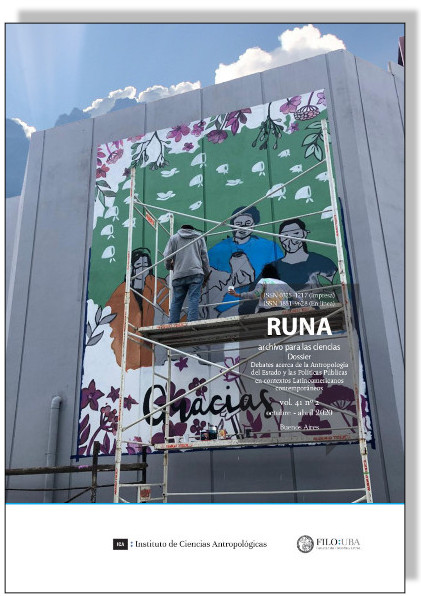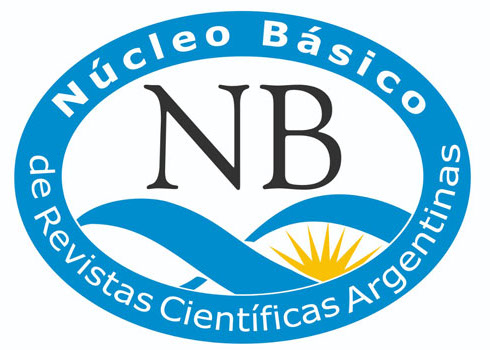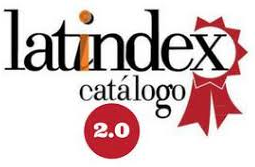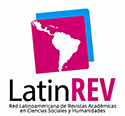Viajar lejos para estar cerca
Las misiones internacionales de una región argentina como políticas públicas
Resumen
El presente trabajo examina las “misiones comerciales e institucionales internacionales de la Región Centro”. En este proceso de integración subnacional, los viajes al exterior se fueron configurando como una política pública ‘regional’ debido, en gran parte, al perfil agroexportador de las provincias socias y al peso de los empresariados locales. A través de focalizar la relevancia atribuida por “funcionarios” y “empresarios” a dichas misiones, se argumenta que su “éxito” no tiene que ver tanto con su contenido (comercial) aparente sino con la producción de una dinámica (política) que tiene al “federalismo” como un valor-en-acción fundamental. En términos teórico-metodológicos, el análisis está construido desde una perspectiva etnográfica basada en los desarrollos conceptuales de la antropología política y del Estado, y en este sentido busca contribuir a comprender las formas en que diversos actores sociales construyen las dinámicas estatales.Descargas
Citas
Alemán, M. (Comp.) (2010). Puentes políticos. Aportes al debate sobre federalismo y partidos políticos. Buenos Aires: Programa de las Naciones Unidas para el Desarrollo (PNUD).
Appel, H. (2017). Toward an Ethnography of The National Economy. Cultural Anthropology, 32(2), 294-322.
Aretxaga, B. (2003). Maddening States. Annual Review of Anthropology, 32, 393-410.
Balbi, F. y Boivin, M. (2008). La perspectiva etnográfica en los estudios sobre política, Estado y gobierno. Cuadernos de Antropología Social, 27, 7-17.
Barrionuevo, M., Iborra, M. F. y Michelena, G. (2016). 24 oportunidades: un análisis del poten-cial exportador de las provincias argentinas. Revista Argentina de Economía Internacional, 5, 22-34.
Bielsa, R., Lavagna, R. y Rosatti, H. (2005). Estado y globalización: el caso argentino. Buenos Aires: Rubinzal-Culzoni.
Boivin, M. (2004). Os usos políticos locais da integração regional. Revista brasileira de ciências sociais, 19(55), 131-148.
Botto, M. (2013). Integración regional y actores subnacionales: El caso del Mercosur. Temas y Debates, 25(1), 83-106.
Bourdieu, P. (1993). Los ritos como actos de institución. En J. Pitt-Rivers y J. Peristiany (Eds.), Honor y gracia (pp. 111-123). Madrid: Alianza Universidad.
Bourdieu, P. (1997). Razones prácticas. Sobre la teoría de la acción. Barcelona: Anagrama.
Castro-Gómez, S. (2010). Historia de la gubernamentalidad. Razón de Estado, liberalismo y neoliberalismo en Michel Foucault. Bogotá: Siglo del Hombre-Pontificia Universidad Ja-veriana.
Cohen, A. y Comaroff, J. (1976). The management of meaning: On the Phenomenology of Po-litical Transactions. En B. Kapferer (Comp.), Transaction and meaning. (pp. 87-107). Philadelphia: Institute of the Study of Human Issues.
Comisión Económica para América Latina y el Caribe (CEPAL). (2019). Balance Preliminar de las Economías de América Latina y el Caribe, 2018 (LC/PUB.2019/1-P). Santiago: Edito-rial de las Naciones Unidas. Recuperado de https://repositorio.cepal.org/bitstream/handle/11362/44326/141/S1801219_es.pdf
Corsín Jiménez, A. (2011). Trust in Anthropology. Anthropological Theory, 11(2), 177-196.
de la Balze, F. (2013). Entre los “cuentos chinos” y la realidad. El surgimiento de China: un dilema central en la política exterior argentina”. Recuperado de http://cari.org.ar/pdf/surgimiento_china.pdf
De la Torre, E. y Rosales, L. (2015). La reinserción de la Argentina en el mundo. Recuperado de http://cari.org.ar/pdf/reinsercion_argentina.pdf
Eriksen, T. (2014). Globalization: The Key Concepts. Londres: Bloomsbury.
Falleti, T. G., González, L. y Lardone, M. (Eds.) (2013). El federalismo argentino en perspectiva comparada. Córdoba: EDUCC.
Ferguson, J. y Gupta, A. (2002). Spatializing states: toward an ethnography of neoliberal gov-ernmentality, American Ethnologist, 29(4), 105-131.
Foucault, M. (2006). Seguridad, territorio, población. Buenos Aires: Fondo de Cultura Econó-mica.
Frías, P. J. (1998). El proceso federal argentino II. Córdoba: El Copista.
Frías, P. J. (2004). La Región Centro, Geopolítica Estratégica. Academia Nacional de Derecho y Ciencias Sociales de Córdoba. Recuperado de http://www.cea.unc.edu.ar/acaderc/doctrina/articulos/artregioncentro
Gasol Varela, C. e Iglesias, E. (Orgs.) (2010). El rol de los gobiernos subnacionales en los procesos de integración regional. Buenos Aires: CARI-de Zabalía.
Gaztañaga, J. (2010). El trabajo político y sus obras. Buenos Aires: GIAPER-Antropofagia.
Gaztañaga, J. (2012). Integraciones subnacionales desde la antropología social. Saarbrücken: EAE.
Gaztañaga, J. (2013). Una perspectiva antropológica sobre el federalismo y el conflicto agropecuario en la Región Centro. Revista Interdisciplinaria de Estudios Sociales, 6(1), 11-35.
Gaztañaga, J. (2016). La política del valor y la política del significado, tendiendo puentes. Antípoda. Revista de Antropología y Arqueología, 24(1), 111-130.
Gibson, E. y Falleti, T. (2007). La unidad a palos. Conflicto regional y los orígenes del federalismo argentino. Postdata, 12(1), 171-204.
Gluckman, M. (1958). Analysis of a Social Situation in Modern Zululand. Manchester: The Rhodes Livingstone Paper 28, Manchester University Press.
Graeber, D. (2005). Fetishism as social creativity. Anthropological Theory, 5(4), 407-438.
Graeber, D. (2018). Hacia una teoría antropológica del valor. Buenos Aires: Fondo de Cultura Económica.
Guber, R. (1991). El salvaje metropolitano. Buenos Aires: Legasa.
Haesbaert, R. (2004). O mito da desterritorialização. Río de Janeiro: Bertrand.
Hann, C. y Hart, K. (2011). Economic Anthropology: history, ethnography, critique. Londres: Polity Press.
Hernández, A. (2000). Integración y globalización: rol de las regiones, provincias y municipios. Buenos Aires: De Palma.
Herzfeld, M. (1997). Cultural Intimacy: Social Poetics in the Nation-State. Nueva York y Londres: Routledge.
Iglesias, V. y Zubelzú, G. (2008). Las provincias argentinas en el escenario internacional. Buenos Aires: PNUD.
Isin, E. (2007). City State: Critique of scalar thought. Citizenship Studies, 11(2), 211-228.
Kapferer, B. (2015). Against the Case as Illustration. En L. Meinert y B. Kapferer (Eds.), In the event. Toward an Anthropology of Generic Moments (pp. 1-28). Oxford: Berghahn.
Krotz, E. (1988). Viajeros y antropólogos: aspectos históricos y epistemológicos de la produc-ción de conocimientos. Nueva Antropología, IX(33), 17-52.
Leach, E. (1976). Sistemas políticos de Alta Birmania. Barcelona: Anagrama.
Malinowski, B. (1975). Los argonautas del Pacífico Occidental. Barcelona: Península.
Mathews, G., Ribeiro, G. L. y Alba Vega, C. (2012). Globalization from Below. The Other Glob-al Economy. Londres: Routledge.
Midón, M. (1998). Derecho de la integración: aspectos institucionales del Mercosur. Santa Fe: Rubinzal-Culzoni.
Mintz, S. (1996). Dulzura y poder: el lugar del azúcar en la historia moderna. México: Siglo XXI.
Powell, H. A. (1960). Competitive Leadership in Trobriand Political Organization. Journal of The Royal Anthropological Institute, 90, 118-145.
Pratt, M. L. (1997). Ojos imperiales. Literatura y transculturación. Buenos Aires: Universidad Nacional de Quilmes.
Rimoldi de Ladmann, E. (2007). Las relaciones económicas internacionales y el federalismo. Buenos Aires: CARI Libros.
Rosatti, H. (1994). La Reforma de la Constitución. Buenos Aires: Rubinzal-Culzoni.
Rose, N. y Miller, P. (1992). Political Power beyond the State: Problematics of Government. The British Journal of Anthropology, 43(2), 173-205.
Sahlins, M. (1990). Cosmologías del Capitalismo. Cuadernos de Antropología Social, 2(1), 95-107.
Shore, C. y Nugent, S. (Eds.). (2002). Elite Cultures. Anthropological perspectives. Londres: Routledge.
Shore, C. y Wright, S. (1997). Anthropology of Policy. Critical perspectives on Governance and Power. Londres: Routledge.
Skidelsky, R. (2019). Money and Government: The Past and Future of Economics. Nueva York: Yale University Press.
Taussig, M. (1996). Un gigante en convulsiones. El mundo humano como sistema nervioso en emergencia permanente. Barcelona: Gedisa.
Tomassi, M. (2002). Federalism in Argentina and the Reforms of the 1990s. Document 69. Stan-ford: Center for Research on Economic Development and Policy Reform.
Trémon, A-C. (2012). Que faire du couple local/global? Social Anthropology, 20, 250-66.
Trouillot, M-R. (2011). Transformaciones globales: la antropología y el mundo moderno. Cauca-Bogotá: Universidad del Cauca y de los Andes.
Tsing, A. (2000). The Global Situation. Cultural Anthropology, 15(3), 327-360.
Verlot, M. (2001). Are politicians human? Review. Social Anthropology, 9(3), 345-353.
Wolf, E. (2000). Europa y la gente sin historia. Buenos Aires: Fondo de Cultura Económica.
Zhang, J. (2014). Remote proximity. Hau. Journal of Ethnographic Theory, 4(1), 376-378.

Runa, archivos para las ciencias es una publicación del Instituto de Ciencias Antropológicas, Facultad de Filosofía y Letras, Universidad de Buenos Aires y se distribuye bajo una Creative Commons Attribution 4.0 International License..
Runa sostiene su compromiso con las políticas de Acceso Abierto a la información científica, al considerar que tanto las publicaciones científicas como las investigaciones financiadas con fondos públicos deben circular en Internet en forma libre, gratuita y sin restricciones.
Los contenidos y opiniones expresadas en los artículos publicados son de entera responsabilidad de sus autores.



















